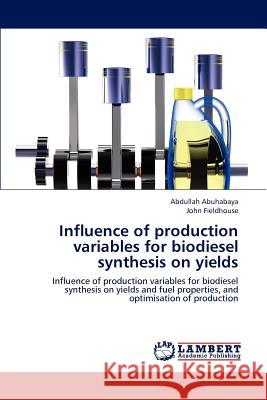Influence of production variables for biodiesel synthesis on yields » książka
Influence of production variables for biodiesel synthesis on yields
ISBN-13: 9783659227615 / Angielski / Miękka / 2012 / 228 str.
Biodiesel, derived from the transesterification of vegetable oils or animal fats with simple alcohols, has attracted more and more attention recently. As a cleaner burning diesel alternative, biodiesel claims to have many attractive features including: biodegradability, nontoxicity, renewability and low emission profiles. Free fatty acid (FFA) esterification and triglyceride (TG) transesterification with low alcohols molar ratio are the central reactions for the biodiesel production. This study presents an experimental investigation into the effects of running biodiesel fuel and its blends on conventional diesel engines. Biofuels provide a way to produce fuels without redesigning any of the engine technology present today, yet allowing for green house emissions to decrease.Biodiesel is one of these types of emerging biofuels, which has an immediate alternative fuel, while providing a decrease in green house gas emissions, as well as a solution to recycling used Waste Vegetable Oils which are otherwise disposed.











